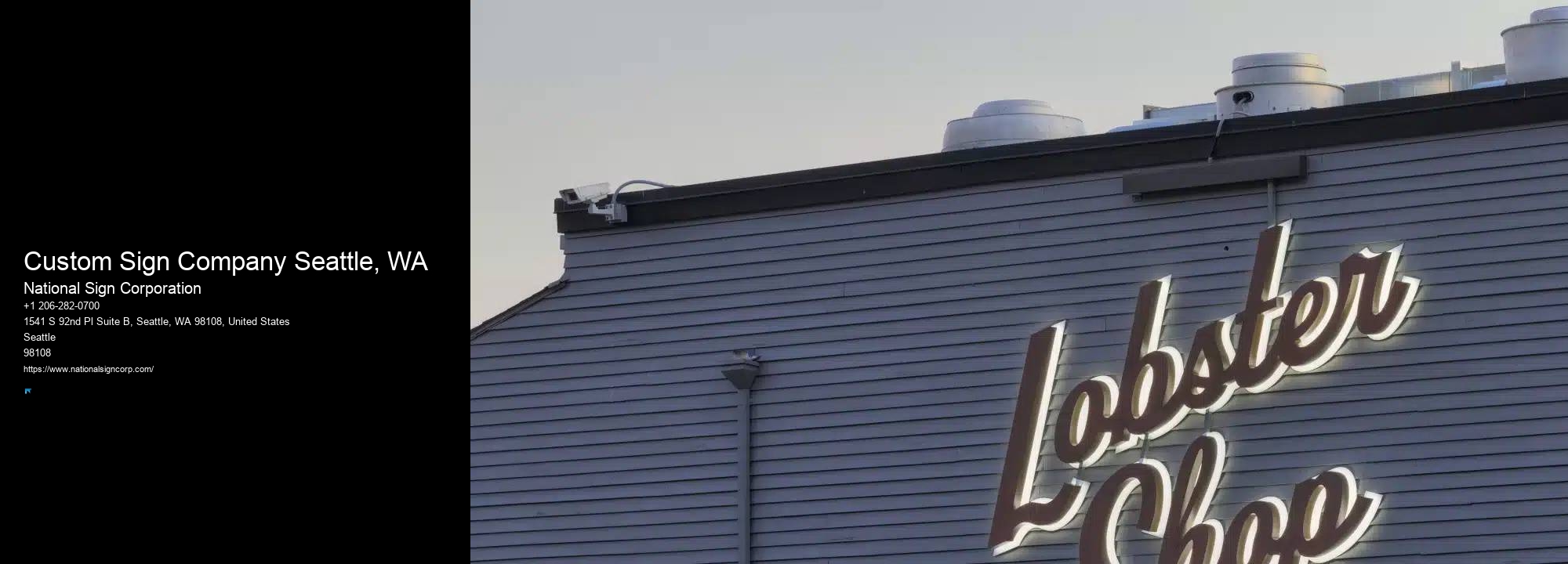

Their feedback has been overwhelmingly positive, with many noting a surge in community engagement and donations. This is where you'll find the real savings. If you're leaning towards a more artistic vibe, custom wall murals or graphics could be your go-to. Learn more about Custom Sign Company Seattle, WA here No matter how you choose to reach out, we're here, ready to transform your ideas into impactful, high-quality signs that speak volumes. They're not just installers; they're problem-solvers who adapt to the unique demands of each project.
Imagine walking down a bustling Custom Sign Company Seattle, WA street, your eyes catch a vibrant, uniquely designed sign.
They're incredibly versatile, capable of being molded into almost any shape or design, allowing your creativity to shine as brightly as the signs themselves. Lastly, keep your message short and to the point. It's clear that the right sign doesn't just mark a location; it can ignite a business's potential, turning a space into a landmark and a brand into a household name.
Seattle is situated on an isthmus between Puget Sound, an inlet of the Pacific Ocean, and Lake Washington. It is the northernmost major city in the United States, located about 100 miles (160 km) south of the Canadian border. A gateway for trade with East Asia, the Port of Seattle is the fourth-largest port in North America in terms of container handling as of 2021.
The journey begins with a deep dive into your brand's essence. It's not just about making a sign; it's about crafting a piece of art that reflects your business's identity. With National Sign Corporation, it's not just about putting up a sign; it's about elevating your brand with installation excellence. Whether it's a sleek, digital display or a classic, hand-painted sign, our aim is to make sure your business stands out. You've likely seen their work without even realizing it-dynamic blade signs that guide your steps, impactful wall signs that catch your eye, and under canopy designs that transform ordinary spaces into landmarks.
Using state-of-the-art technology and creative flair, designers bring your ideas to life. What sets them apart? Your business could be the next success story. Unlike traditional signage options, LEDs have a longer lifespan, ensuring your message shines bright for years to come without frequent replacements or maintenance hassles.
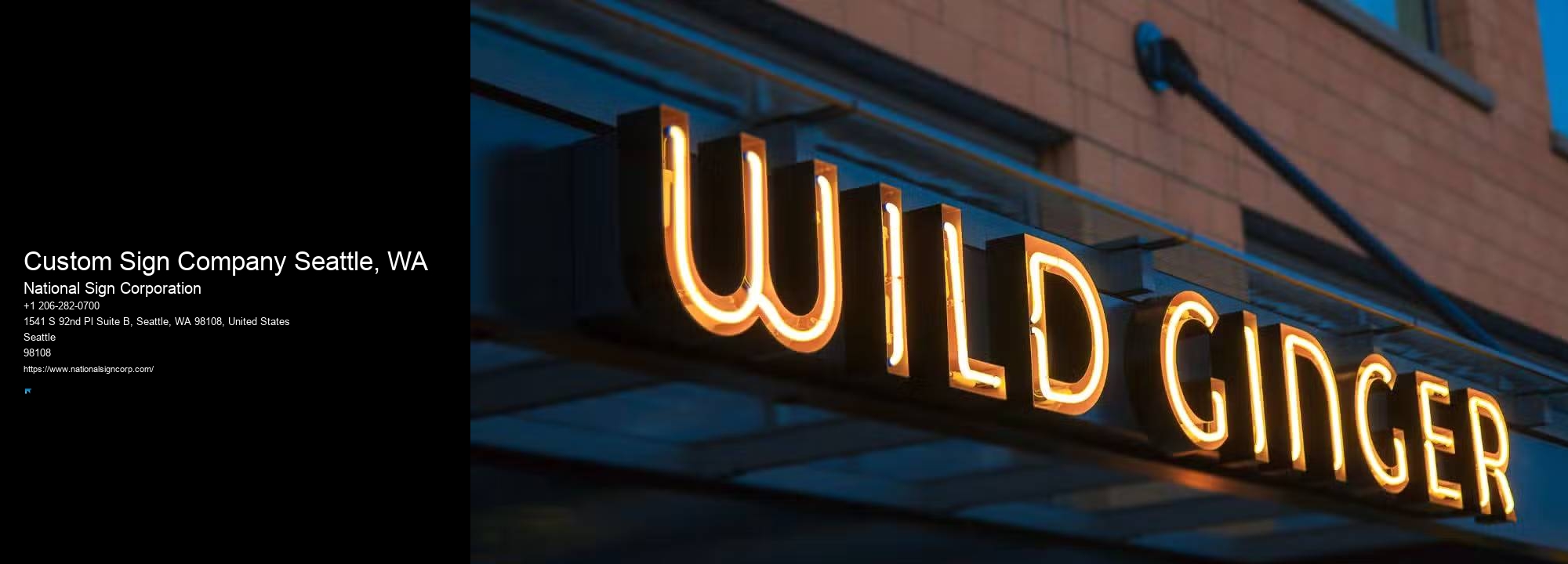
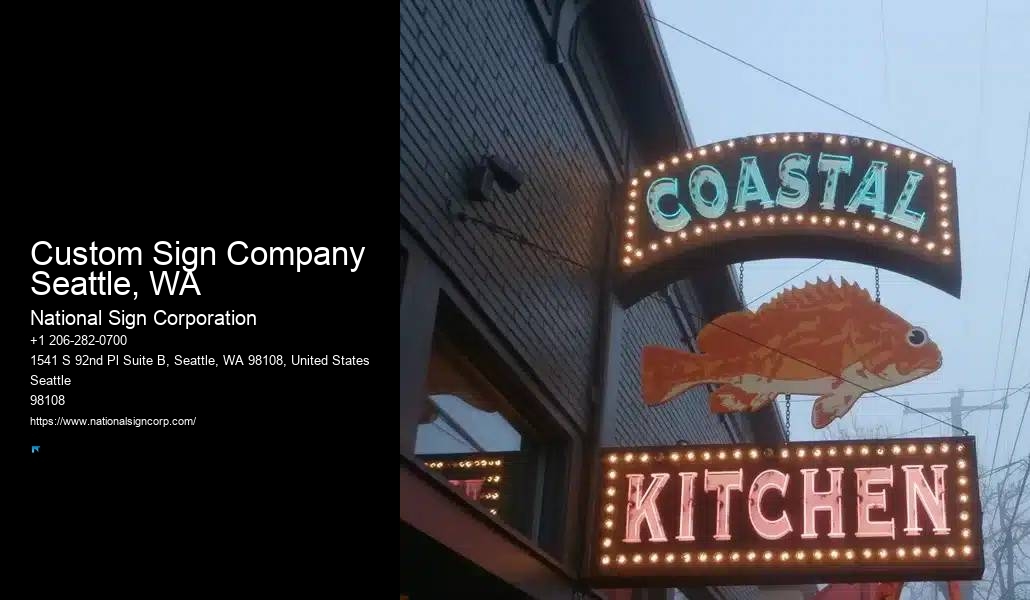
We use only high-quality materials and the latest techniques to restore your sign to its original glory. Choosing a sign from National Sign Corporation also means receiving top-notch maintenance and support services tailored to your needs.
This holistic approach ensures that your signage is an extension of your brand, creating a cohesive and memorable experience for your customers.
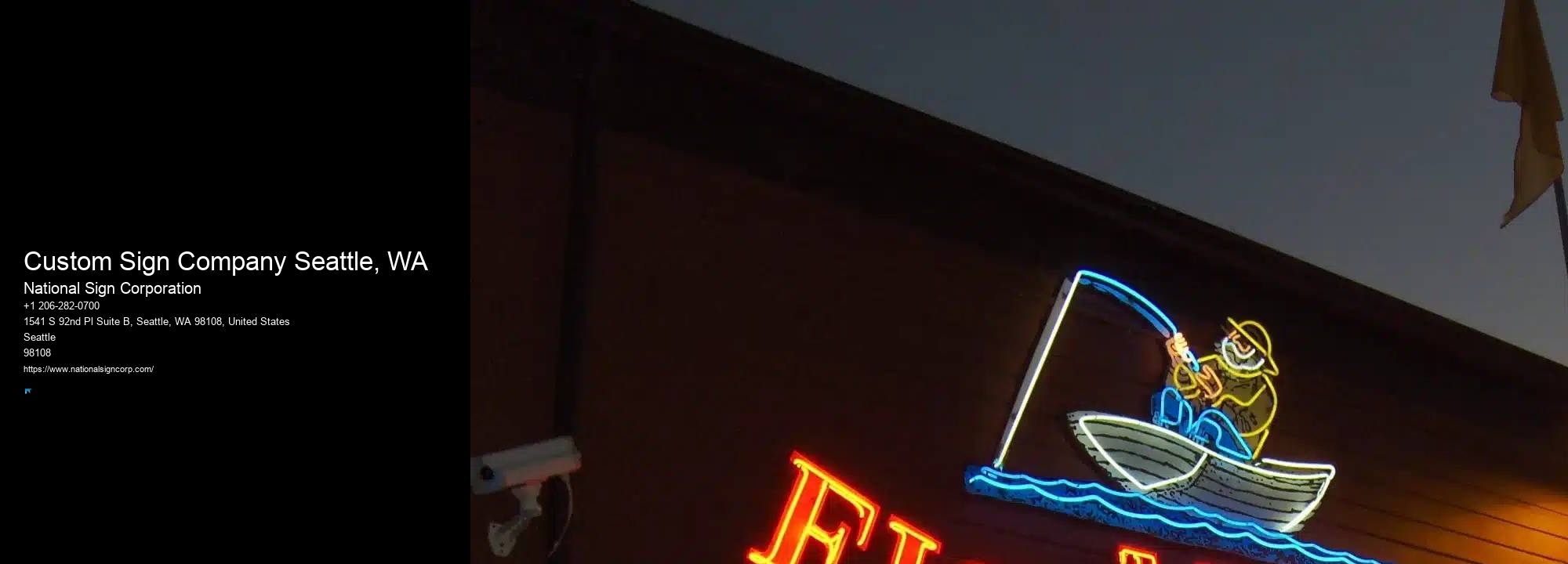
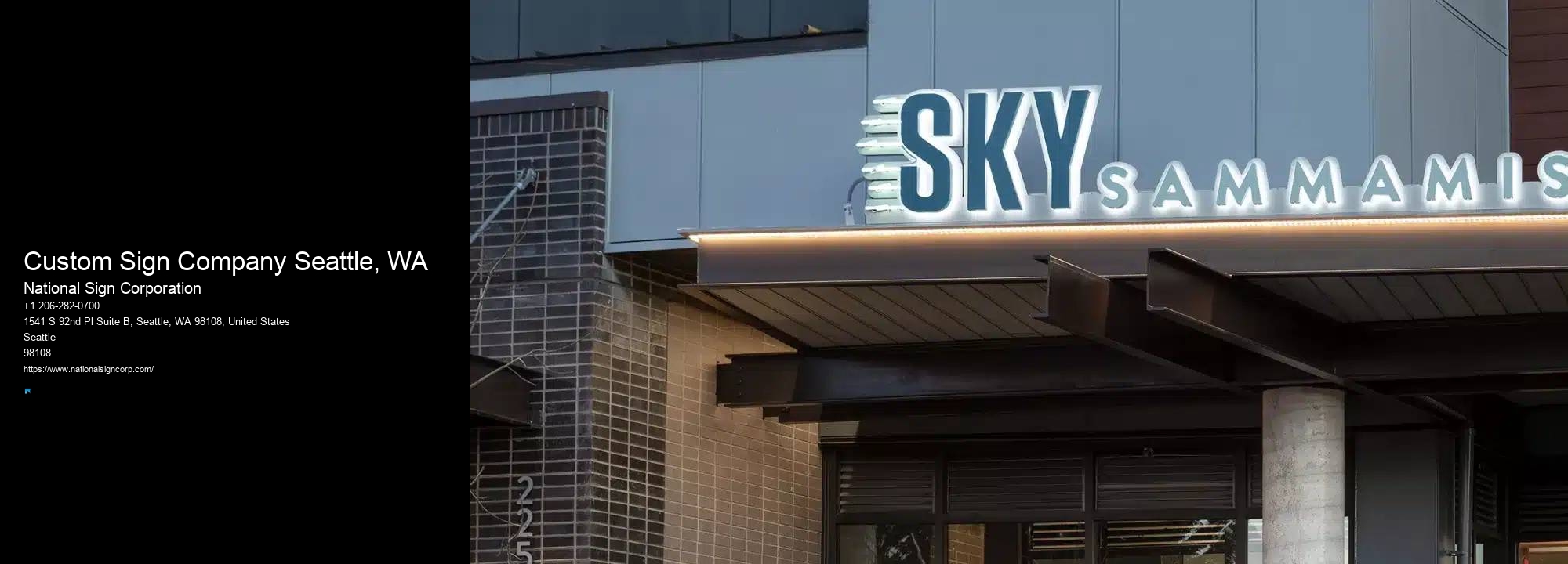
Monument signs are built to last, crafted from materials that withstand the elements, ensuring your brand stands tall through the seasons. This approach doesn't just benefit the environment; it also makes economic sense for you.
One such story involves a local café that struggled to attract foot traffic. They'll help you navigate the permit process, ensuring that your design meets all necessary codes before moving forward. When you're aiming to make your mark, it's not just about a sign; it's about signaling your unique presence in a competitive landscape. Before you know it, your custom, eco-friendly signage will be installed, ready to attract and impress your customers. We're proud to say that we use recycled materials wherever possible.
At National Sign Corporation, we understand that each element of your sign, from color choice to typography, plays a crucial role in how your brand is perceived. These signs can be crafted from various materials, including metal, acrylic, and foam, offering a customizable depth and texture that'll surely catch the eye. With National Sign Corporation, you're getting more than a sign; you're making a statement. They're not just creating signs; they're crafting the first chapter of your business's story that greets every customer at the door.
Custom signs serve as a powerful tool, directly boosting your brand's visibility and distinguishing it in a crowded marketplace. So, when you're looking to turn heads and elevate your brand, remember: it starts with what's overhead. Expect to see materials that aren't only eco-friendly but also enhance durability and efficiency. It's a back-and-forth exchange, where your input is as valuable as the team's expertise.
National Sign Corporation understands that the first impression counts. Our team dives deep into understanding your brand's essence, target audience, and location specifics to design signs that not only capture attention but also convey your message clearly and effectively. As you walk down the street, imagine digital screens that blend seamlessly with their environment, offering you personalized messages based on your interests and past interactions.
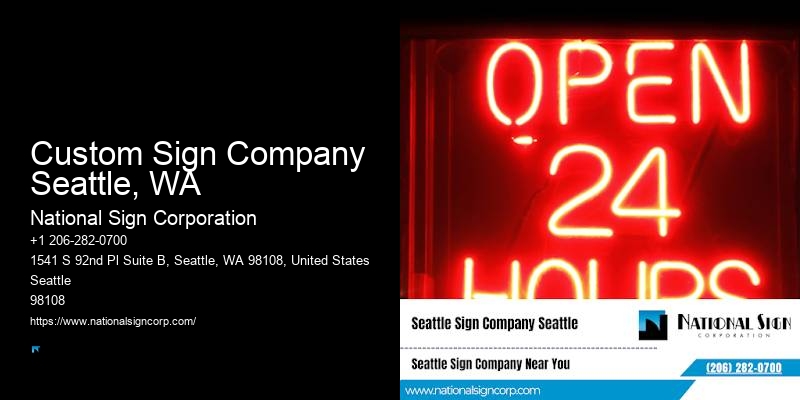



A sign is an object, quality, event, or entity whose presence or occurrence indicates the probable presence or occurrence of something else.[1] A natural sign bears a causal relation to its object—for instance, thunder is a sign of storm, or medical symptoms a sign of disease. A conventional sign signifies by agreement, as a full stop signifies the end of a sentence; similarly the words and expressions of a language, as well as bodily gestures, can be regarded as signs, expressing particular meanings. The physical objects most commonly referred to as signs (notices, road signs, etc., collectively known as signage) generally inform or instruct using written text, symbols, pictures or a combination of these.
The philosophical study of signs and symbols is called semiotics; this includes the study of semiosis, which is the way in which signs (in the semiotic sense) operate.
Semiotics, epistemology, logic, and philosophy of language are concerned about the nature of signs, what they are and how they signify.[2] The nature of signs and symbols and significations, their definition, elements, and types, is mainly established by Aristotle, Augustine, and Aquinas. According to these classic sources, significance is a relationship between two sorts of things: signs and the kinds of things they signify (intend, express or mean), where one term necessarily causes something else to come to the mind. Distinguishing natural signs and conventional signs, the traditional theory of signs (Augustine) sets the following threefold partition of things: all sorts of indications, evidences, symptoms, and physical signals, there are signs which are always signs (the entities of the mind as ideas and images, thoughts and feelings, constructs and intentions); and there are signs that have to get their signification (as linguistic entities and cultural symbols). So, while natural signs serve as the source of signification, the human mind is the agency through which signs signify naturally occurring things, such as objects, states, qualities, quantities, events, processes, or relationships. Human language and discourse, communication, philosophy, science, logic, mathematics, poetry, theology, and religion are only some of fields of human study and activity where grasping the nature of signs and symbols and patterns of signification may have a decisive value. Communication takes place without words but via the mind as a result of signs and symbols; They communicate/pass across/ messages to the human mind through their pictorial representation.


The word sign has a variety of meanings in English, including:
St. Augustine was the first man who synthesized the classical and Hellenistic theories of signs. For him a sign is a thing which is used to signify other things and to make them come to mind (De Doctrina Christiana (hereafter DDC) 1.2.2; 2.1.1). The most common signs are spoken and written words (DDC 1.2.2; 2.3.4-2.4.5). Although God cannot be fully expressible, Augustine gave emphasis to the possibility of God's communication with humans by signs in Scripture (DDC 1.6.6). Augustine endorsed and developed the classical and Hellenistic theories of signs. Among the mainstream in the theories of signs, i.e., that of Aristotle and that of Stoics, the former theory filtered into the works of Cicero (106-43 BC, De inventione rhetorica 1.30.47-48) and Quintilian (circa 35–100, Institutio Oratoria 5.9.9-10), which regarded the sign as an instrument of inference. In his commentary on Aristotle's De Interpretatione, Ammonius said, "according to the division of the philosopher Theophrastus, the relation of speech is twofold, first in regard to the audience, to which speech signifies something, and secondly in regard to the things about which the speaker intends to persuade the audience." If we match DDC with this division, the first part belongs to DDC Book IV and the second part to DDC Books I-III. Augustine, although influenced by these theories, advanced his own theological theory of signs, with whose help one can infer the mind of God from the events and words of Scripture.

Books II and III of DDC enumerate all kinds of signs and explain how to interpret them. Signs are divided into natural (naturalia) and conventional (data); the latter is divided into animal (bestiae) and human (homines); the latter is divided into non-words (cetera) and words (verba); the latter is divided into spoken words (voces) and written words (litterae); the latter is divided into unknown signs (signa ignota) and ambiguous signs (signa ambigua); both the former and the latter are divided respectively into particular signs (signa propria) and figurative signs (signa translata), among which the unknown figurative signs belong to the pagans. In addition to exegetical knowledge (Quintilian, Institutio Oratoria 1.4.1-3 and 1.8.1-21) which follows the order of reading (lectio), textual criticism (emendatio), explanation (enarratio), and judgment (iudicium), one needs to know the original language (Hebrew and Greek) and broad background information on Scripture (DDC 2.9.14-2.40.60).
Augustine's understanding of signs includes several hermeneutical presuppositions as important factors. First, the interpreter should proceed with humility, because only a humble person can grasp the truth of Scripture (DDC 2.41.62). Second, the interpreter must have a spirit of active inquiry and should not hesitate to learn and use pagan education for the purpose of leading to Christian learning, because all truth is God's truth (DDC 2.40.60-2.42.63). Third, the heart of interpreter should be founded, rooted, and built up in love which is the final goal of the entire Scriptures (DDC 2.42.63).
The sign does not function as its own goal, but its purpose lies in its role as a signification (res significans, DDC 3.9.13). God gave signs as a means to reveal himself; Christians need to exercise hermeneutical principles in order to understand that divine revelation. Even if the Scriptural text is obscure, it has meaningful benefits. For the obscure text prevents us from falling into pride, triggers our intelligence (DDC 2.6.7), tempers our faith in the history of revelation (DDC 3.8.12), and refines our mind to be suitable to the holy mysteries (DDC 4.8.22). When interpreting signs, the literal meaning should first be sought, and then the figurative meaning (DDC 3.10.14-3.23.33). Augustine suggests the hermeneutical principle that the obscure Scriptural verse is interpreted with the help of plain and simple verses, which formed the doctrine of "scriptura scripturae interpres" (Scripture is the Interpreter of Scripture) in the Reformation Era. Moreover, he introduces the seven rules of Tyconius the Donatist to interpret the obscure meaning of the Bible, which demonstrates his understanding that all truth belongs to God (DDC 3.3.42-3.37.56). In order to apply Augustine's hermeneutics of the sign appropriately in modern times, every division of theology must be involved and interdisciplinary approaches must be taken.[3]
First off I don't like to leave reviews, but for this company I will. We are a business that has been around over 50 years looking for some bulbs to be replaced in our Honda sign. First person tells me they are way backed up which i have no problem with, and then tells me that unless i am a current customer they will not take me on, I thought businesses wanted new business, if we turned people away we would not be here, then I get transferred to a women who tells me they are 3 weeks out, no problem i say i just need them fixed, I told her the business name and she proceeds to tell me she needs address pictures of sign and a bunch of other bs stuff. I said can 't you just google us and you will see the sign and all the info she would need. She said no i can't look it up. To sum up my frustration I decided to take my business elsewhere based on this companies lazy employees not wanting to take a sec. to use the amazing tool we have called google. They are local and I wanted to support them. If I found out one of my employees had a conversation like this with a potential customer they would be fired on the spot. At the rate they are going they sure won't have a long future turning new business away. Current business always drys up and they should always be looking for new customers.
As an architect, I rely on professionals like National Sign for my projects. They are very knowledgeable, they help advise me on the very complicated codes for signage, and they are capable of integrating so many different materials: wood, metal, glass, etc... Their shop is like a workman's fantasy camp!
I began doing business with National Sign back in 1989 with a relatively minor project. Their diligence and attention to detail ensured the project's success. 29 years later the two signs are still looking great and seeing them reminds me why I have chosen National to be my sole branding partner.
We've worked with National on several large-scale signage projects and they're excellent. The team is creative, responsive, and the final product is beautiful. I highly recommend them.
I have done business with National Sign for over 30 years as a Safeway store manager in Seattle, a store manager for a grocery independent in Spokane and now in Oregon. NSC does what they say they will do. They are on time, professional, and thorough. NSC communicated with me throughout the project. All their signs have looked great. I highly recommend.
You're wondering if there are financing or payment plan options for small businesses aiming to invest in high-quality signage. It's important to check with the provider as options can vary widely.
You're looking at an average turnaround time from the first chat to installing your custom sign typically ranging between 4 to 6 weeks, depending on the project's complexity and specific requirements.
They use durable materials and secure installation methods to protect signs from vandalism and weather. Additionally, they might offer maintenance services to keep your sign in top shape despite any harsh conditions it faces.